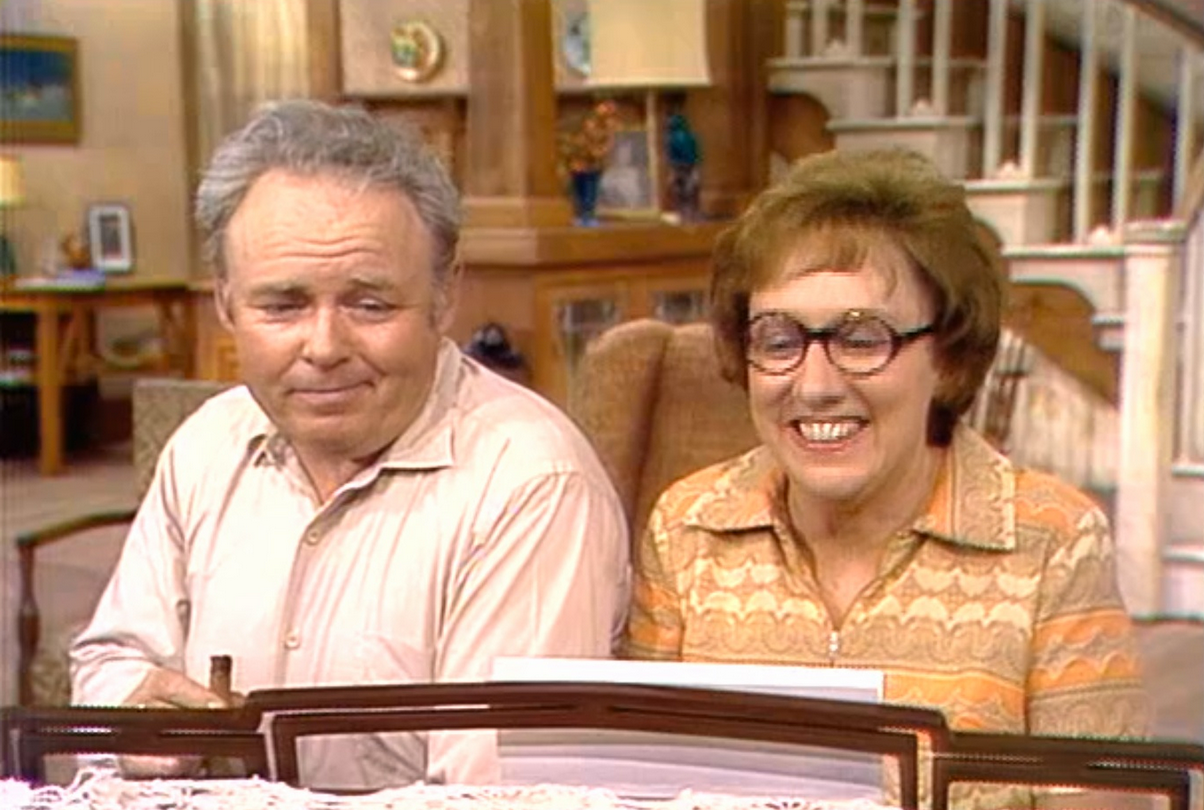
There is one name that immediately comes to mind when thinking about “All in the Family”—Archie Bunker. This lovable yet infuriating character, portrayed by Carroll O’Connor, is one of television’s most iconic figures. With his deeply ingrained prejudices and often bigoted views, Archie challenged the status quo and ignited fierce debates about race, gender, and politics that still resonate today. But why does this controversial character remain relevant in today’s polarized world? Let’s dive into why Archie Bunker’s character—and the show itself—continues to captivate audiences over four decades later.
The Archie Bunker Phenomenon At the heart of “All in the Family” is Archie Bunker, a man whose flawed worldview represented the struggles and tensions of mid-20th-century America. On the surface, Archie was the quintessential working-class man—blunt, direct, and proud of his blue-collar roots. But it was his deeply prejudiced views on race, gender, and politics that set him apart. As the show’s patriarch, Archie’s opinions often clashed with those of his more progressive family members, especially his son-in-law, Mike Stivic, who represented the countercultural movement of the time.
The clashes between Archie and Mike became some of the most iconic moments in television history. Archie’s favorite insult for Mike, “Meathead,” became synonymous with his contempt for the younger generation’s liberal values. And while Archie’s views were often offensive, the show’s brilliance lay in its ability to use comedy to expose the flaws in those views, while simultaneously presenting them as a reflection of real, widespread societal attitudes.
The Satirical Genius of Norman Lear “All in the Family” was the brainchild of Norman Lear, a visionary producer known for his ability to blend satire with social commentary. Through Lear’s unique approach, Archie Bunker was transformed from a caricature of a bigoted man into a complex character who, despite his flaws, remained relatable. Lear used humor to humanize Archie, allowing audiences to laugh at him while also sympathizing with the fact that he was a product of his environment.
By confronting the issues of race, class, and gender head-on, Lear gave voice to characters and perspectives that were often marginalized in television. He wasn’t interested in creating villains or heroes; instead, he wanted to show the messy, complicated reality of life. In doing so, he opened the door for a new breed of television that could tackle taboo topics while still entertaining its audience.
The Relevance of “All in the Family” Today While “All in the Family” aired in a very different time, its messages are still incredibly relevant today. In a world where divisive political views and cultural differences seem to define the social landscape, the show’s themes of tolerance, bigotry, and change continue to strike a chord with modern viewers. Archie Bunker may have been an exaggeration of certain societal attitudes, but his character also mirrored the struggles we still face as a society in terms of race, gender, and class.
The show’s ability to challenge conventional thinking and spark discussions about uncomfortable topics is just as important today as it was when the show first aired. In a time when cancel culture, political correctness, and social justice movements dominate the conversation, “All in the Family” reminds us of the power of humor to confront difficult subjects and challenge societal norms.
What Can We Learn from Archie Bunker in 2025? In today’s polarized political and social climate, the character of Archie Bunker remains an essential part of the conversation. His character forces us to confront our own biases and assumptions about the world around us. Although he is often offensive and his views are outdated, Archie’s character is a mirror for the struggles many of us face when confronting change in our communities and the larger world.
By revisiting “All in the Family,” we are reminded of the power of television to challenge our preconceived notions, to make us laugh while also making us think deeply about the society we live in. In 2025, the show’s lessons about tolerance, understanding, and personal growth remain as urgent as ever.
